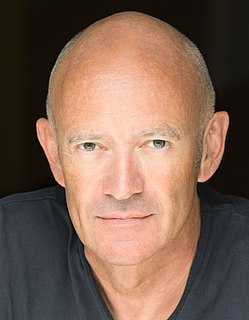A Quote by Moshe Sharett
As for the long-term future: I am prepared to see in this a vision, not a mystical way but in a realistic way, of a population exchange on a much more important scale and including larger territories.
Related Quotes
The most important thing that a company can do in the midst of this economic turmoil is to not lose sight of the long-term perspective. Don't confuse the short-term crises with the long-term trends. Amidst all of these short-term change are some fundamental structural transformations happening in the economy, and the best way to stay in business is to not allow the short-term distractions to cause you to ignore what is happening in the long term.
Angela Merkel has been focused on the right things. She has focused on the interests of her citizens - and not just in a narrow, short-term way, but in a very thoughtful - Let's make the world a better place for future generations as well - kind of way. Whether it's about climate or migration, she's not afraid to look at the longer-term trendlines and say, OK, we need position ourselves here, even if it doesn't seem obvious - this is the direction we need to go in. People respect that in Merkel, that a politician has a vision for the long term.
There's none as deaf as those who won't listen. I get letters. If they are moronic, they go in the wastepaper basket, but if they are reasonable points, I try to explain. I am planning for the long-term future. I am planning for the long-term future. People say build a team not a hotel, but that argument is irrelevant. It's like fish or meat
Swim upstream. Go the other way. Ignore the conventional wisdom. If everybody else is doing it one way, there's a good chance you can find your niche by going in exactly the opposite direction. But be prepared for a lot of folks to wave you down and tell you you're headed the wrong way. I guess in all my years, what I heard more often than anything was: a town of less than 50,000 population cannot support a discount store for very long.
I struggled in London for a very long time. 'Be prepared to struggle a lot' - it's a European mentality. The American mentality is positive and 'You can do it' and 'Everything's possible.' In Europe it's an older, more realistic way of thinking. You feel like you're having to prove that you can do it.
As far as population size goes, big is no longer important, and it can even be a drawback. In fact, the future belongs more to second-tier cities. Any place can become a world-class center today by finding an area in which it outperforms others, by thinking for the long term, by expanding its competitive abilities and by operating globally.
Coming out, all the way out, is offered more and more as the political solution to our oppression. The argument goes that, if people could see just how many of us there are, some in very important places, the negative stereotype would vanish overnight. ...It is far more realistic to suppose that, if the tenth of the population that is gay became visible tomorrow, the panic of the majority of people would inspire repressive legislation of a sort that would shock even the pessimists among us.
People tell me the Netflix series, House of Cards, is sort of like my class come to life. The movie Margin Call portrays the realities of hierarchical relationships and rivalries beautifully, and how people respond when under pressure. Gandhi and Long Walk to Freedom both have the virtue of presenting larger-than-life figures in a more realistic way, showing their flaws and contradictions - their humanity - in a way that is very helpful.
I like to be flexible in the way I take pictures. I do not use a tripod, and I move around in the crowd, of which I am myself part.... I try to preserve the dynamics of the street, and my way of using the camera tries to approximate as much as possible the way we see: focusing on details, opening up to wider angles, and composing all these very short, fragmented impressions into a larger mental picture.












































